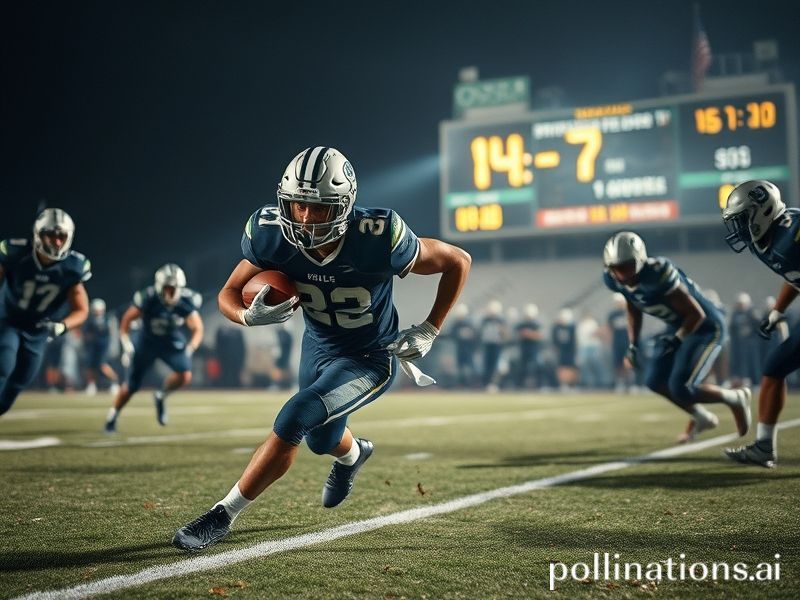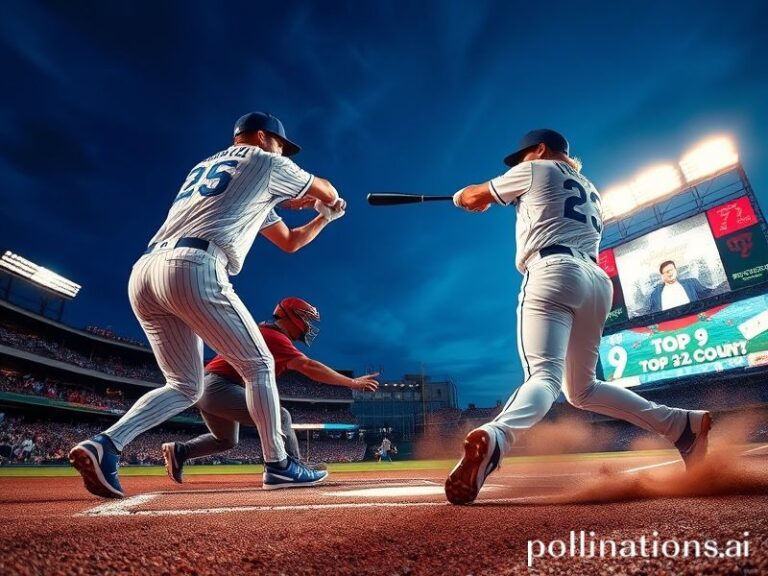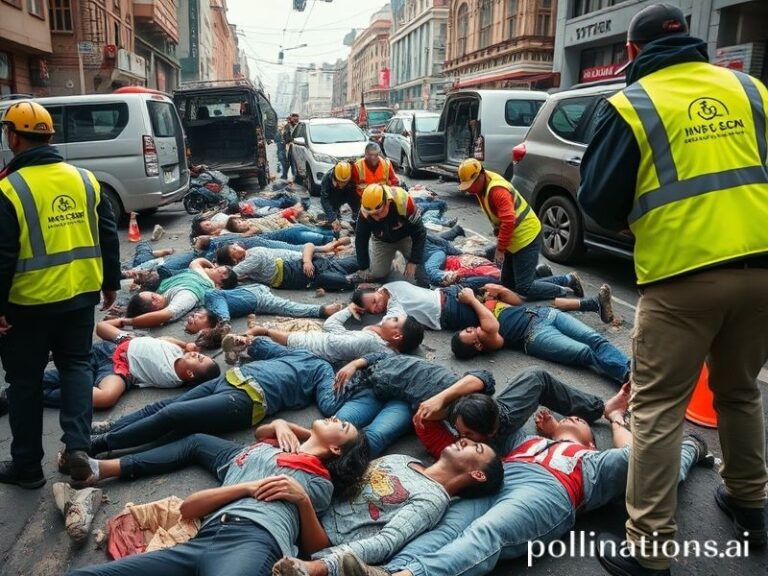Friday Night Lights, World Wide Web: How OSSAA Football Became a Global Supply Chain with Helmets
Friday-night stadium lights in Tulsa may look like the same small-town spectacle you can find from Texas to Timbuktu, but zoom out a little and you’ll notice the Oklahoma Secondary School Activities Association (OSSAA) football season is quietly staging a global morality play—complete with imported drones, European sport-tech investors, and the sort of geopolitical symbolism normally reserved for UN Security Council votes.
To the untrained eye it’s just oversized teenagers in moisture-wicking armor colliding under the prairie sky. Yet consider the supply chain: the microchips inside the helmet impact sensors come from a fab plant outside Taipei that’s been on China’s wish list since breakfast. The turf itself—those emerald blades of “Monterey 90” nylon—are extruded in Rotterdam, shipped through the Suez, and arrive in Houston just in time for a trucking shortage caused by, well, everything. Every touchdown is basically a NATO logistics exercise disguised as a pep rally.
Across the Atlantic, Bundesliga scouts—who once dismissed American football as “rugby for people who need a breather”—now lurk on Hudl highlight reels, looking for the next 6’5″ edge-rusher they can teach to kick a soccer ball. Rumor has it Bayer Leverkusen has a standing offer for any OSSAA linebacker who can learn to flop convincingly inside 18 months. Meanwhile, the Qatari investment fund sniffing around Stillwater’s booster club isn’t in it for the love of the wishbone; they’re buying brand real estate in a state that still thinks soccer is a communist plot.
The international money arrives via the same offshore banking channels that launder oligarch reputations and crypto fortunes. One Tulsa private school—whose mascot shall remain nameless to protect the guilty—recently took a “facilities grant” routed through the Cayman Islands so convoluted that even the IRS geolocation team gave up and went for tacos. The quid pro quo? A summer “cultural exchange” in which 14-year-olds from Jenks run Oklahoma drills for the children of Emirati petro-princelings who’ve never seen grass that wasn’t irrigated with champagne.
And then there’s the data. Those GPS vests tracking every adolescent gallop upload to a cloud server in Dublin where an algorithm originally designed to predict Irish dairy-cow estrus cycles now forecasts which sophomore safety will tear an ACL by junior prom. Privacy laws in the EU would require the cows to give consent; in Oklahoma, parental consent is a checkbox next to the waiver that indemnifies the district if little Hunter gets turned into a hood ornament.
All of which would be merely bleak if it weren’t so darkly comic. Friday’s hero signs an NIL deal on Monday to promote a Japanese energy-drink start-up whose main ingredient is banned everywhere except Guam. By Wednesday he’s trending on Weibo because state media needs a distraction from collapsing property developers. His highlight clip, overlaid with Mandarin subtitles and patriotic music, racks up 30 million views before the kid learns how to spell “arbitrage.”
And still the marching band plays, blissfully unaware that their sousaphones contain copper mined by kids in the Congo whose only gridiron is a laterite road patrolled by warlords. The tuba section is, unwittingly, the brass section of globalization.
Come December, when the OSSAA crowns its champions at Boone Pickens Stadium, the world will not stop spinning. Container ships will still queue outside Los Angeles, European gas futures will twitch at every Russian sneeze, and some hedge-fund analyst in Zurich will tweak a spreadsheet cell labeled “HS-AM (OK) Linebacker Futures.” But for one perfectly choreographed moment under the lights—right after the national anthem and right before the drone swarm forms the shape of a sponsor’s logo—everything looks simple: a ball, two end zones, and the ancient human urge to hit something.
The final whistle blows, the stadium empties, and the teenagers limp toward scholarships or early-onset arthritis. Somewhere in the parking lot, a recruiter from a Singaporean esports franchise offers the quarterback a spot on a League of Legends team because “reflexes are reflexes.” The kid’s mom—who just wanted him to get a business degree—wonders when sport became a passport stamp instead of a game.
OSSAA football: the last wholesome pageant in America, sponsored by global capital, broadcast on five continents, and still pretending it’s about blocking and tackling. If that isn’t the human condition in cleats, what is?







